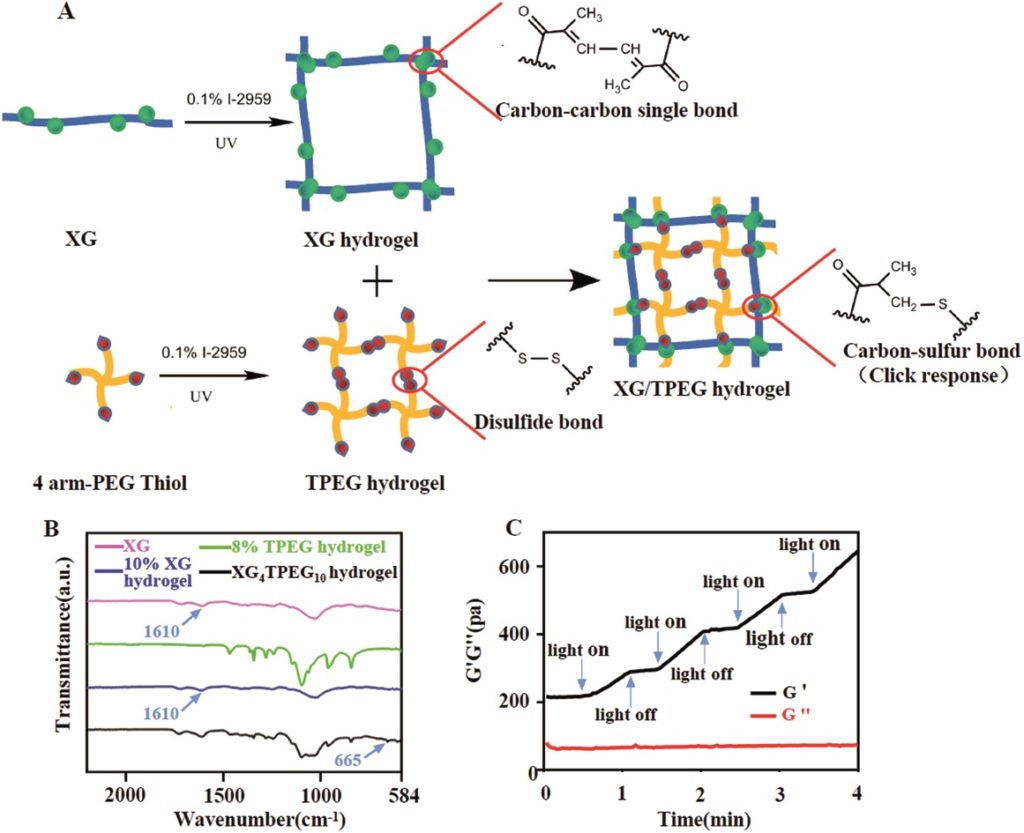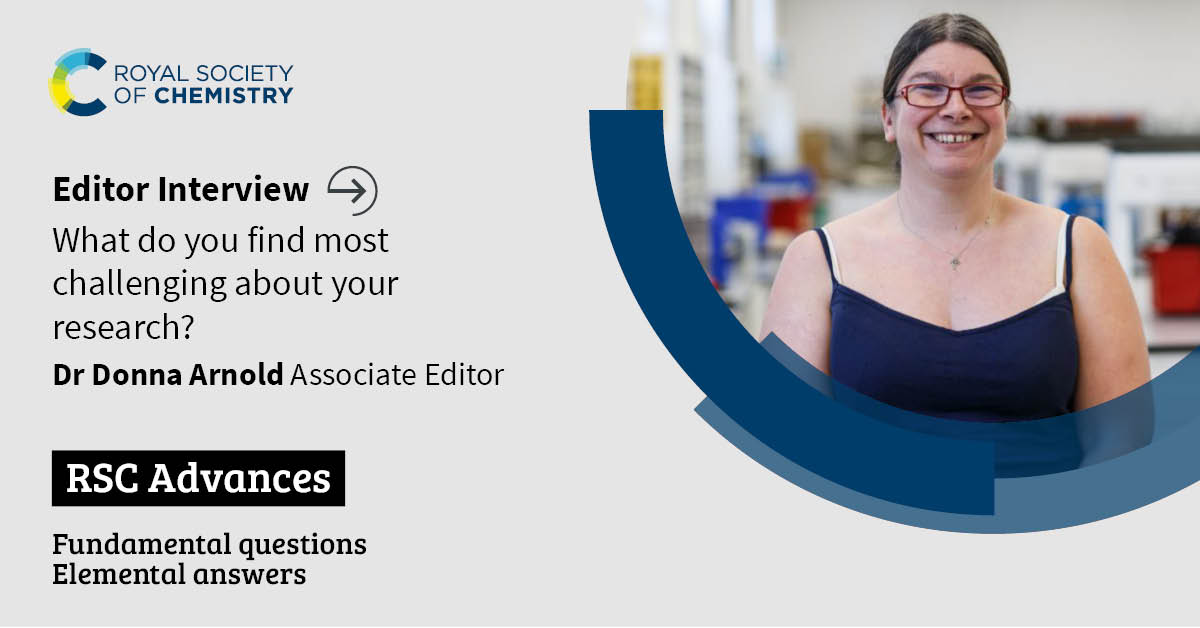
Dr Donna Arnold, Associate Editor of the Royal Society of Chemistry’s RSC Advances, believes it’s vital that scientists contribute to their community by getting involved in the process of publishing high quality research.
Dr Donna Arnold is Senior Lecturer in Chemistry and Forensic Science at the University of Kent. Her PhD, undertaken at the Royal Institution of Great Britain, focussed on the structure and electronic properties of porous manganese oxides. She has since worked at the Foundation for Research and Technology in Crete and undertaken postdoctoral research at the University of St Andrews. Her research on functional nanomaterials at University College Cork earned her national recognition for her role in the design of the first patterned substrates manufactured by Intel to meet key research needs.
Q. What is your personal research focus, and what aspect of your work are you most excited about at the moment?
I focus on new multifunctional materials for next-generation devices. In particular, my team are interested in synthesising materials with both magnetic and ferroelectric properties. Realising commercially useful materials of this kind would allow us to build memory devices which offer faster read/write capabilities while simultaneously requiring less energy to operate.
Q. What do you find most challenging about your research?
Research should be challenging. Without challenge there is no reward. That said, often the trickiest part is knowing when to share it with the scientific community. Do you wait until you have a complete picture, or do you share your findings as they come? There are pros and cons to both approaches and these vary depending on the project.
Q. Why did you decide to become an Associate Editor for RSC Advances?
I wanted to understand more about the publishing process, contribute to my community, improve my own submissions, and share knowledge and best practice. I applied to RSC Advances because it has a truly global readership across all areas of chemistry.
My role as Associate Editor gives me an opportunity to see the extensive, excellent work being performed in my area of expertise and to play a part in sharing this work with the wider research community.
Q. What is your favourite thing about the Associate Editor role?
It’s got to be witnessing the wonderful, innovative and exciting science being done worldwide. As researchers, our focus often becomes very narrow and we end up only reading within our direct area of interest. Being an Associate Editor means that I read a broad range of science. I’m constantly amazed by the innovative experiments that scientists perform!
Q. How does your role contribute to the journal and to the scientific community?
We all strive to publish our work and rely on these mechanisms to share knowledge and communicate our ideas – something that’s only achievable through the sensitive handling of papers by editorial staff and peer reviewers.
I hope that my contribution to the publishing of excellent science in RSC Advances inspires researchers and continues to drive science to new and exciting heights.
Q. If you had one piece of advice for authors submitting to RSC Advances, what would it be?
Include a cover letter with your submission which allows us to see where you think your work falls in the field and gives us a sense of the paper before we read it. Tell us why your work is cutting-edge and how it extends the current state of the art. What are the highlights? Why is it exciting? How does it fit within the scope of the journal?
Q. Who were your role models as a child, and did you always want to be a scientist?
I always wanted to be a scientist, although initially I wanted to be a pathologist (inspired by the TV show Quincy)! I later realised my true passion was for materials chemistry and that I really wanted to be an academic. I’ve been fortunate to have had some wonderful teachers and an incredibly supportive family, without whom this path would have been impossible.
Q. Which profession would you choose if you weren’t a researcher?
I’d like to think that I would have become a rock star or racing-car driver – although I lack the talent for both!
More realistically, I would have become a primary school teacher so that I could have inspired the next generation of researchers and scientists.

Submit to RSC Advances today! Check out our author guidelines for information on our article types or find out more about the advantages of publishing in a Royal Society of Chemistry journal.
























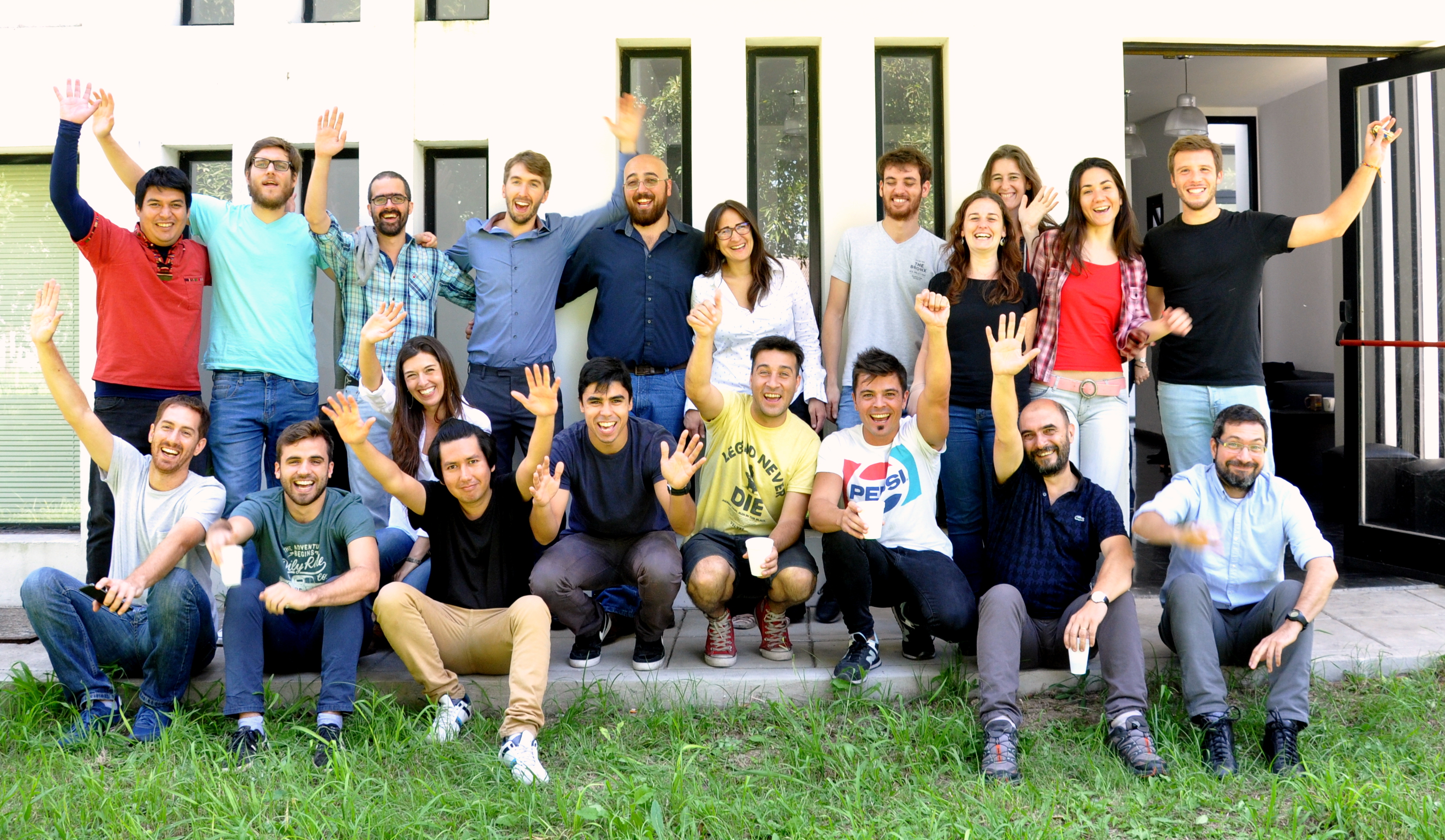
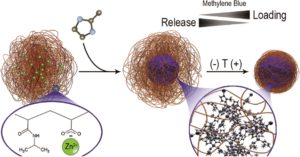
 We are very pleased to introduce Gerrard Marangoni, corresponding author of the paper ‘
We are very pleased to introduce Gerrard Marangoni, corresponding author of the paper ‘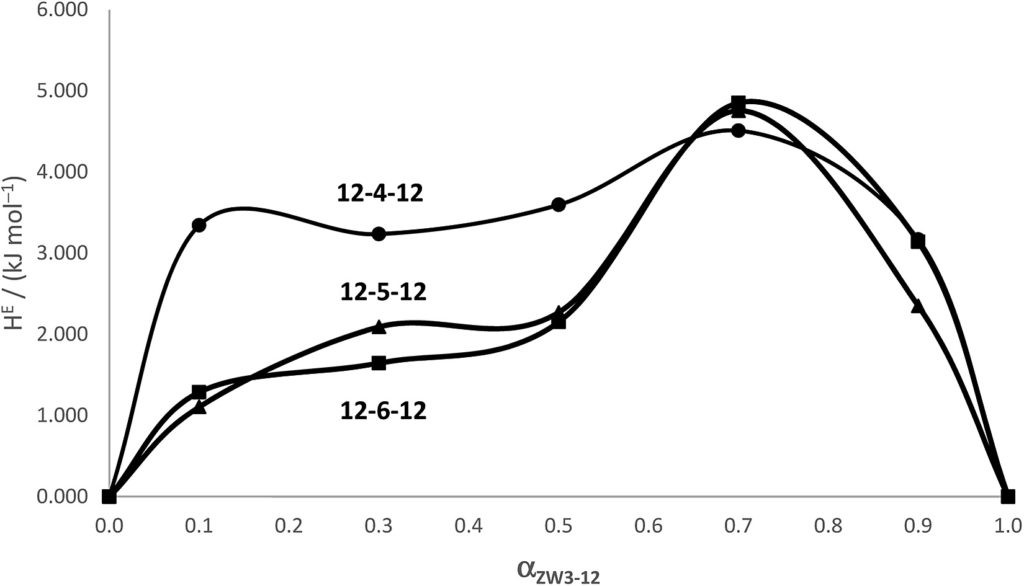

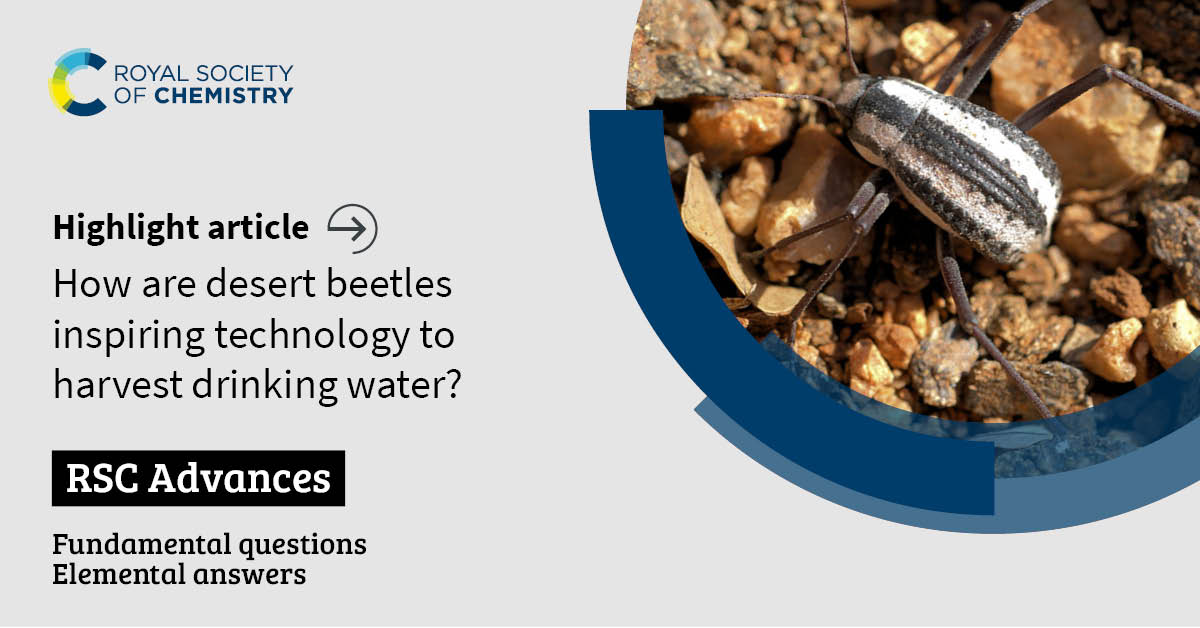


 We are very pleased to introduce Peige Wang, co-author of the paper ‘
We are very pleased to introduce Peige Wang, co-author of the paper ‘